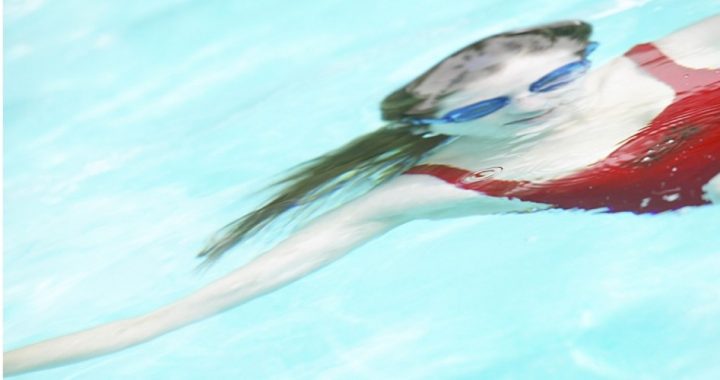
If you want our freedoms restored, well, as they say, don’t hold your breath waiting — especially since holding your breath may soon be against the law, at least in a certain context.
In an effort many would described as the nanny-state run amuck, there’s a movement afoot to ban “prolonged breath holding” in public pools. Reuters Barbara Goldberg reports:
A U.S. Navy SEAL hopeful and his friend, an off-duty lifeguard, were barreling through underwater drills in a pool just 3.5 feet (1 meter) deep. No one realized anything was wrong until their limp, unconscious bodies were noticed beneath the surface.
This summer, nearly four years after those deaths in a Staten Island pool raised alarms about a little known hazard called shallow-water blackout or hypoxic blackout, New York City is putting up warning signs at all public pools prohibiting prolonged breath holding.
It is part of a movement to raise awareness of the peril that has killed accomplished swimmers and to stop it by banning lengthy breath holding in the nation’s estimated 300,000 public pools.
Goldberg tells us that New York City and Santa Barbara, California, have, along with perhaps some other U.S. cities, already outlawed the practice. And on the surface this may make sense to some if even aspiring Navy Seals can die engaging in it. But unlike with serious swimmers, the perils for society become greater when policy-makers’ analyses stay on the surface.
Goldberg also reports that “in New York state [sic] alone, four people aged 17 to 22 and ‘known to be advanced to expert swimmers’” died in breath holding incidents from 1988 to 2011.”
Four.
And that would be over a 23-year span in a state with almost 20 million people.
During that same period approximately 30,000 New Yorkers died in motor-vehicle accidents. Should we outlaw cars?
Some will say the difference is that driving is a necessity while underwater breath-holding is not, but this implied standard would justify the prohibition of most recreational activity. While national statistics on hypoxic-blackout deaths are hard to come by, if we extrapolate the NY figures to a population of 320 million (the U.S.’s approximate population), we arrive at a figure of 64 over the 23-year period. For every 23-year period between the years 1862 and 2007, however, there was an average of at least 144 baseball-related deaths, usually from being struck by hard balls. Perhaps America’s favorite pastime should be relegated to the past.
There are other activities responsible for far more deaths than prolonged breath-holding, such as horseback riding, hang gliding, rock climbing, skateboarding, motorcycle racing, cave diving, and heli-skiing. People also die weightlifting, sometimes from torn aortas or by dropping heavy barbells on their chests. So the government has a lot of banning to do to fully save us from ourselves.
Also note that as with this story about the death of a competitive Russian power lifter and a close call I had with a barbell during my professional athlete days, the hypoxic-blackout deaths seem almost exclusively limited to the highly-accomplished and driven, to swimmers such as Navy Seal aspirants (another individual was training for spear fishing). The point? These are people engaging in extreme sports/activities, which always entail greater risk than does normal recreation; serious athletes understand this, and we couldn’t have serious athletics without the acceptance of it.
Of course, these serious swimmers should be warned of the dangers, and they’d be wise to take a leaf out of weightlifters’ book and use “spotters” when engaging in their extreme breath-holding. But laws won’t stop such ambitious individuals from pursuing their training. Moreover, the problem here is much the same as when politicians cite silk-and satin CEOs or well-heeled hedge-fund managers to justify higher taxation: A few extreme cases are used as poster boys for policy that will apply to everyone.
For example, I swam frequently as a child, and seeing how far you could go underwater on one breath was almost a rite of passage. As an adult I’ve also had the occasional lighthearted competition in this regard, and I’ve seen family and friends do so as well. It’s something engaged in by millions each year without incident — against four deaths over 23 years. And it should be prohibited? Really?
At this point some might say I should take a breath, that this is much ado about little. But it’s actually a symptom of wider problems, such as the health-Nazi, nanny-state mentality advanced by those who, as C.S. Lewis put it, “torment us for our own good [and] will torment us without end for they do so with the approval of their own conscience.” Then there’s another issue: grieving-activist advocacy.
It’s not unusual today for victims or their families to appear in front of legislative bodies to advocate for a cause. Politicians often find this useful, as it’s much harder to, for instance, oppose gun control when a weeping mother comes before lawmakers and gives testimony as to how a pistol-wielding thug took her child’s life. And this phenomenon is evident with respect to hypoxic-blackout deaths, too. As Goldberg tells us, “The push to ban breath holding is largely driven by families who lost loved ones” to the practice.
Now, a person who loses a loved one will obviously be heartbroken, and allowances must be made when perhaps rash statements are rendered in a grief-stricken state. But making allowances for politicians who base policy on such statements — or, worse still, use such people as “political human shields” — is a different matter.
This should not happen, and for the same reason why we don’t allow a victim (or his relatives) to choose the victimizer’s punishment. We understand that the operative principle here is not vengeance but justice. And this cannot be fair and consistent if determined by the very inconsistent thing called human emotional state, something especially unreliable when beset by irrationality, which often plagues the aggrieved. Yet while we wouldn’t allow the perhaps irrational desires of the heartbroken to trump the law, we allow them to influence that law in the first place.
Law must be based on principles, not passions. If we understood this, we wouldn’t increasingly be drowning in proliferating laws, regulations, and mandates that make it harder for all of us to breathe — in water or out.



